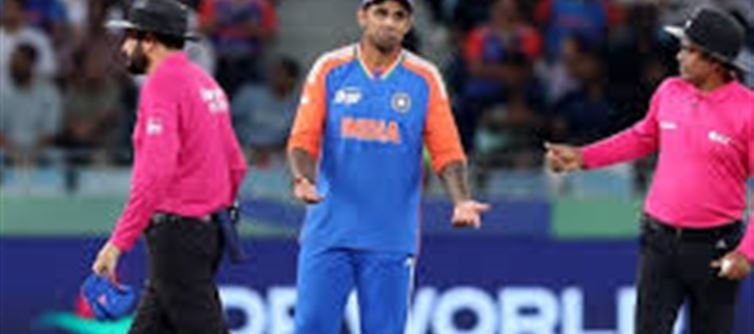
Dubai, september 27, 2025 – A controversy surrounding the Super Over in the Asia Cup 2025 match between India and Sri Lanka has sparked a fresh debate about the need for clearer rules in the event of a tie. The high-stakes Super 4 encounter took a dramatic turn when the match went into a Super Over to decide the winner, and this has led to former Sri Lankan cricketer and coach Sanath Jayasuriya calling for a revision and fine-tuning of the existing rules.
The Controversy:
· Super Over Drama: The Super Over itself became a highly intense and controversial moment in the match between india and Sri Lanka. After both teams finished with equal scores in the main game, they had to face off in the Super Over. india emerged victorious, but there were disagreements and debates regarding some of the rules governing the Super Over scenario.
· Umpire Decisions: During the Super Over, a few umpiring decisions were called into question, with some arguing that they may have been misinterpreted. The controversy revolved around the interpretation of the number of legal balls and field placements in the Super Over, which led to calls for greater clarity in the protocols.
· Impact on the Match: Despite India’s victory, the controversy over the Super Over overshadowed the excitement of the match, with Sri Lanka’s players and fans voicing their concerns about the fairness of the proceedings. The disputes and delays during the Super Over led to frustration, leaving both teams feeling uncertain about the clarity of the rules governing such high-pressure situations.
Sanath Jayasuriya’s Statement:
· Call for Rule Review: Sanath Jayasuriya, a former Sri Lankan cricketing legend and current coach, expressed his concerns about the lack of clarity in certain aspects of the Super Over rules. He emphasized that while Super Overs are exciting and often needed to decide close matches, they should be fair and transparent to avoid such controversies.
· Fine-Tuning the Rules: Jayasuriya suggested that the International Cricket Council (ICC) should consider fine-tuning the existing rules to ensure consistency in future Super Over scenarios. He recommended clearer guidelines around umpire decisions, legal deliveries, and fielding restrictions, which could help eliminate confusion and make the game more transparent for players and fans alike.
Other Experts Weigh In:
· Clarity and Fairness: Several cricketing experts and former players also joined the conversation, agreeing with Jayasuriya’s call for clarity in the rules. They pointed out that in a format as crucial as the Super Over, any ambiguity in rules could impact the integrity of the match, especially when the game is on the line.
· ICC's Responsibility: Many experts also suggested that the ICC needs to take a more proactive role in reviewing and revising the rules governing Super Overs, particularly given the increasing frequency of Super Over scenarios in high-profile matches.
Looking Forward:
· Rule Updates Expected? The ICC has not yet made a statement on the issue, but following this controversy, there is increasing pressure for the governing body to clarify the rules surrounding Super Overs. Given the growing importance of the Super Over in modern cricket, this could be an area of focus for rule revisions in the near future.
· Impact on Future Tournaments: The debate about Super Over rules is expected to gain more traction ahead of major tournaments like the ICC world cup 2025. A clearer and more uniform set of regulations could help avoid confusion and ensure that matches are decided fairly.
Conclusion:
The India vs sri lanka Super Over controversy has brought attention to potential gaps in the rules governing high-pressure finishes in limited-overs cricket. Sanath Jayasuriya’s call for the fine-tuning of Super Over rules adds to growing concerns over fairness and clarity. The ICC will likely face increasing pressure to review these regulations to maintain the integrity of the game and ensure that such controversial moments do not overshadow the excitement of matches in the future.
Disclaimer:
The views and opinions expressed in this article are those of the author and do not necessarily reflect the official policy or position of any agency, organization, employer, or company. All information provided is for general informational purposes only. While every effort has been made to ensure accuracy, we make no representations or warranties of any kind, express or implied, about the completeness, reliability, or suitability of the information contained herein. Readers are advised to verify facts and seek professional advice where necessary. Any reliance placed on such information is strictly at the reader’s own risk.
.jpg)




 click and follow Indiaherald WhatsApp channel
click and follow Indiaherald WhatsApp channel